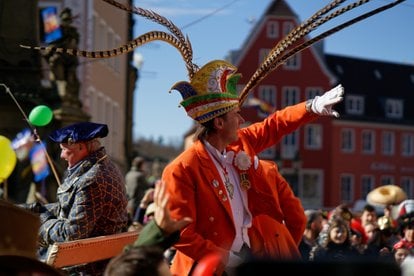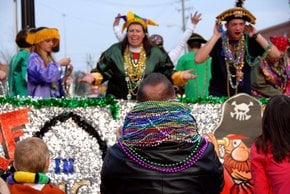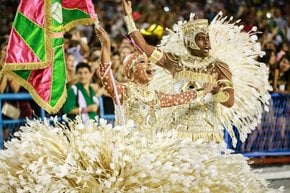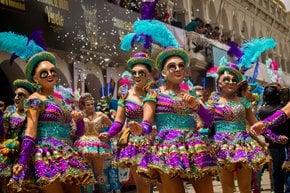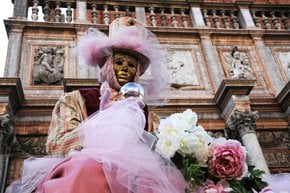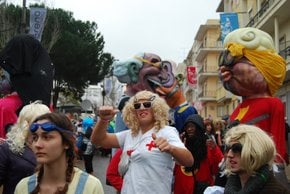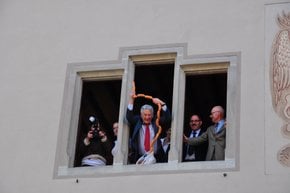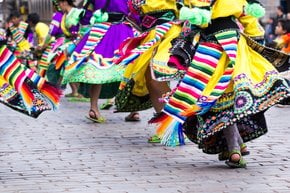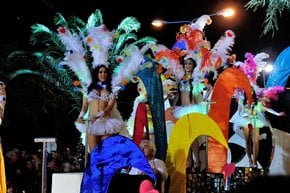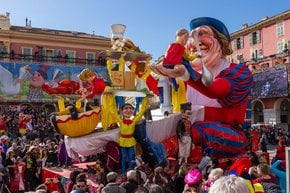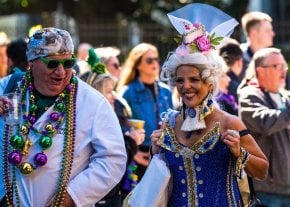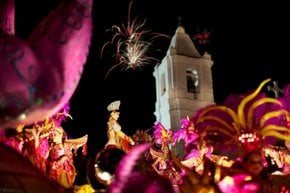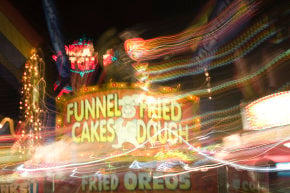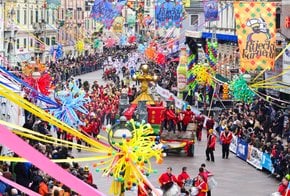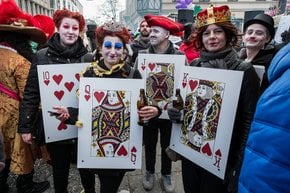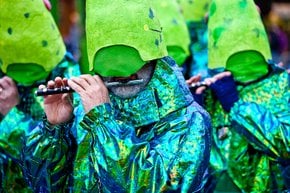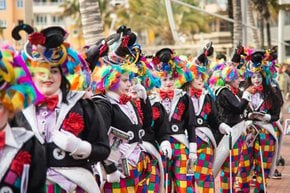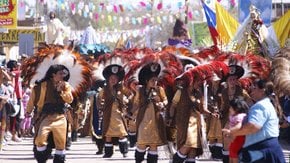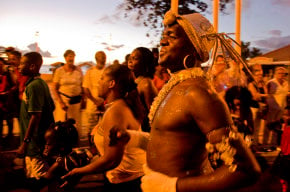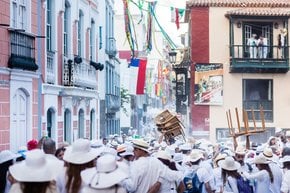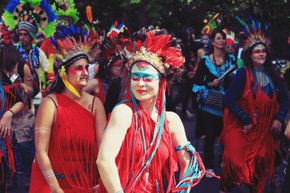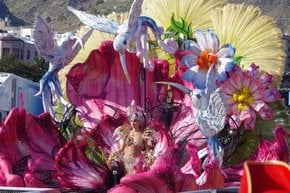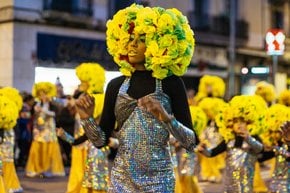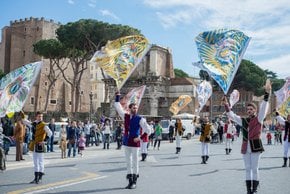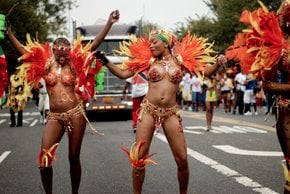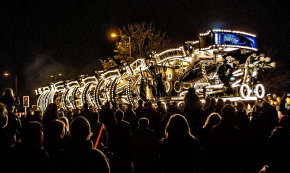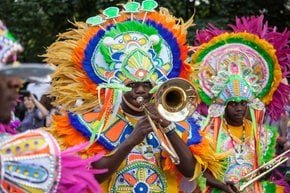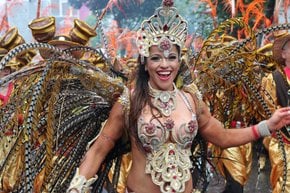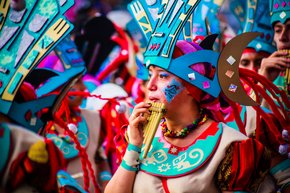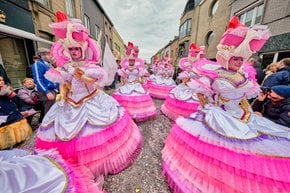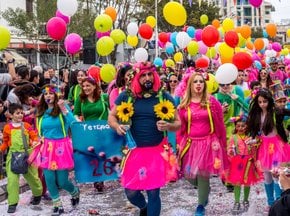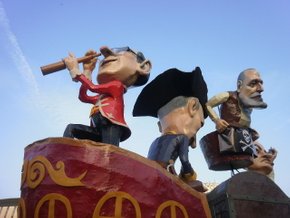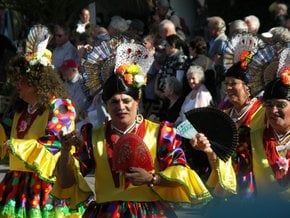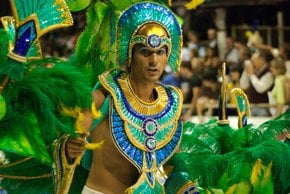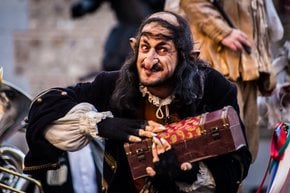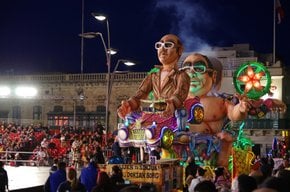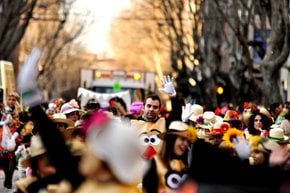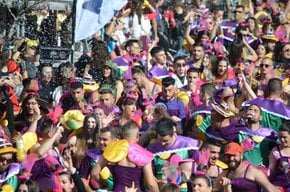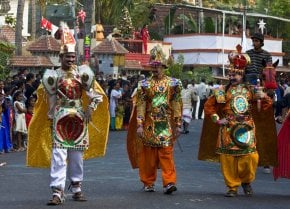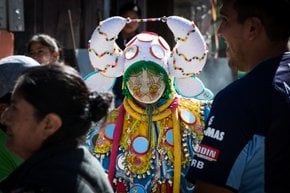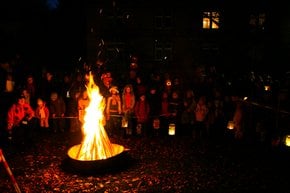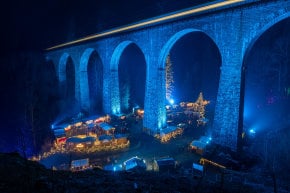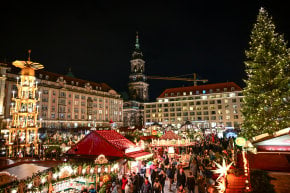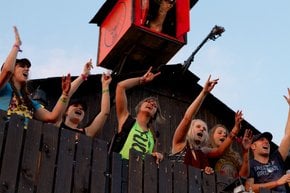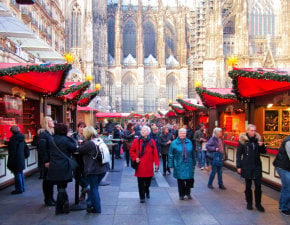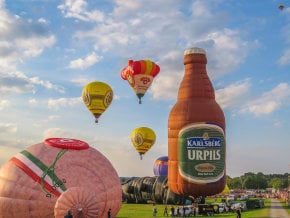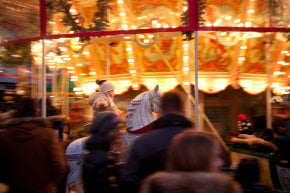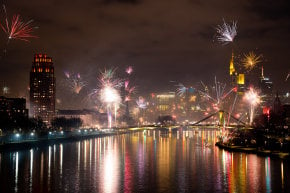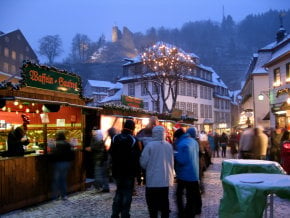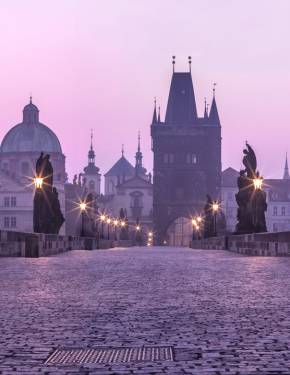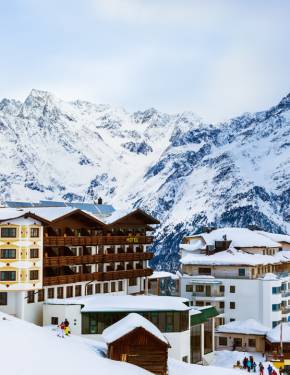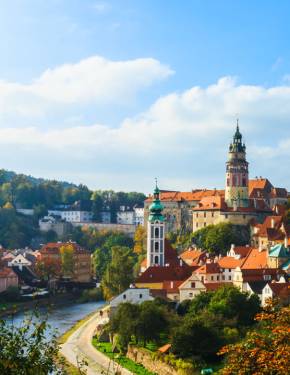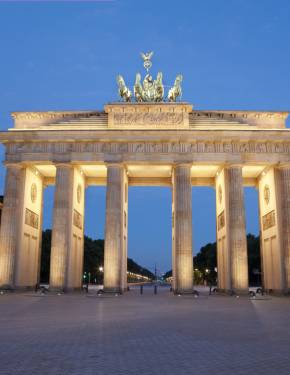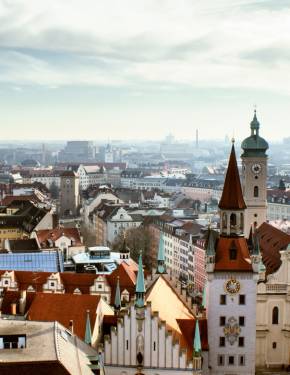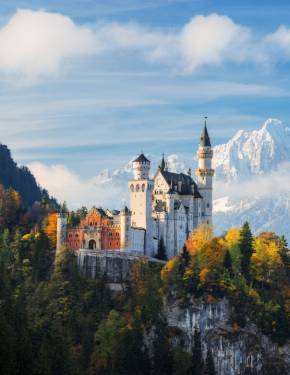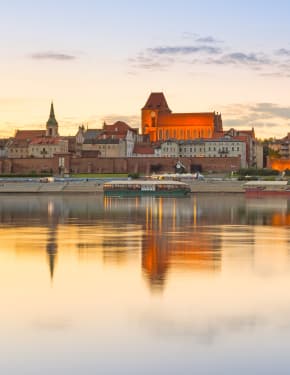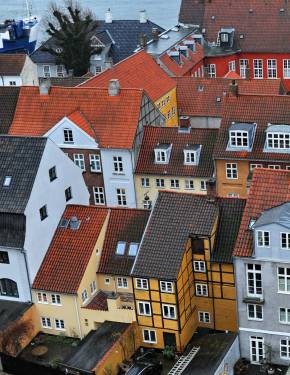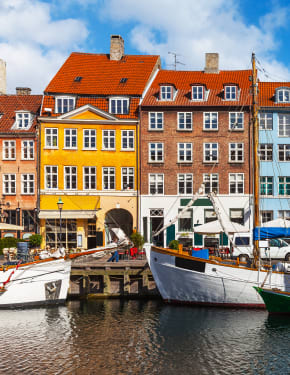Fasching, Karneval and Fastnacht in Germany 2025
Experience the vibrant German version of Mardi Gras, filled with music, parades, and festivities!
Dates: March 2–4, 2025
Germany celebrates Carnival with three different terms—Karneval, Fasching, and Fastnacht—each rooted in unique regional traditions. These festivities, held before Lent, are filled with parties, parades, and costumes, symbolizing the banishment of winter and a burst of merriment. Dating back centuries, Fasching includes plays, speeches, masks, and comical skits. The words "Helau" and "Alaaf" are commonly used to kick off or greet participants in the celebrations. Across Germany, the Carnival atmosphere is full of laughter, joy, and cultural charm, varying by region but united in its spirit of fun.
Fasching, Karneval, or Fastnacht?
In Germany, the terms Karneval, Fasching, and Fastnacht are used to describe pre-Lenten Carnival celebrations, but their usage and traditions vary by region. Karneval is predominant in the Rhineland (e.g., Cologne, Düsseldorf, Aachen), with the Rose Monday parade being a highlight. Fasching is used in southern Germany (e.g., Bavaria, Munich) and parts of eastern Germany (e.g., Berlin, Brandenburg). Its major parades occur on Carnival Sunday. Fastnacht, found in regions like Baden-Württemberg, Mainz, and Hesse, refers to the Swabian-Alemannic Carnival, featuring unique traditions such as wooden masks and folk costumes.
Dates
Fasching officially begins on November 11 at 11:11 am, marking the start of the Carnival season. However, the main festivities typically kick off on January 6 (Epiphany) and continue until the 42nd day before Easter, culminating in vibrant celebrations. The most anticipated events include the Rosenmontag parades on the Monday before Ash Wednesday in southern German cities and lively parties on Fastnachtsdienstag (Shrove Tuesday), which run until midnight, marking the transition into Lent.
Locations
Some of Germany's most renowned Fastnacht celebrations occur in Köln (Cologne), Rottweil in Baden-Württemberg, and Braunschweig. Cologne, widely regarded as the epicenter of German carnival festivities, attracts millions of revelers with its grand parades, colorful costumes, and energetic street parties. Rottweil offers a more traditional and unique Swabian-Alemannic celebration characterized by elaborate wooden masks and cultural customs. Meanwhile, Braunschweig hosts one of Germany's oldest and largest carnival parades, dating back to 1293, showcasing a rich blend of history and modern festivity.
Cologne Carnival
Cologne’s street carnival, also called "the crazy days," kicks off on Fat Thursday (Weiberfastnacht) at the Alter Markt square and runs until Ash Wednesday. The highlight is Rose Monday (Rosenmontag), with costumed parades filling the streets. Revelers greet each other with the traditional phrase "Kölle Alaaf!" The festivities end dramatically on Ash Wednesday night with the burning of the Nubbel, a straw doll symbolizing sins, carried from pubs to its fiery end.
Munich Carnival
The Munich Carnival, or Fasching, is a lively week-long celebration filled with colorful parades, street festivals, and traditional performances. Running from February 23 to March 4, 2025, it includes highlights like the Damische Ritter parade, "München narrisch" street carnival, and the famous Dance of the Market Women at Viktualienmarkt. Events range from masquerade balls to whimsical processions featuring costumed participants, brass bands, and historical clubs. The festivities culminate on Shrove Tuesday with vibrant dances, music, and revelry, embodying the joyful spirit of Bavaria's carnival season.
Origins
The history of Fasching dates back to pre-Roman times when early festivals likely celebrated the transition from winter to spring. The masks and costumes that characterize modern Carnival celebrations have their origins in the medieval era when they served not as playful adornments but as essential disguises. Revelers used them to mock the ruling elite without fear of retribution, as their anonymity protected them from severe punishment, including death. German kings and princes, on the other hand, used Carnival as an opportunity to display their grandeur and wealth.

